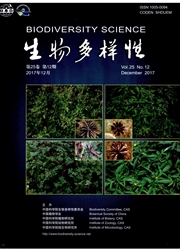

 中文摘要:
中文摘要:
保护遗传学研究的是影响物种灭绝的遗传因素以及濒危物种的遗传管理,以降低物种的灭绝风险。本文从遗传多样性本身及其对生态系统的影响两个方面介绍了植物保护遗传学的最新进展。根据遗传标记的功能,保护遗传学研究可分为选择中性遗传变异研究和适应性遗传变异两个方面。对于目前主要采用的选择中性遗传标记研究,本文着重介绍了以下方面的最新进展:(1)利用遗传标记进行个体、物种或遗传单元的鉴定,从而有效地设计保护策略,避免在迁地保护中混淆物种,提高保护效率;(2)应重视由于物种自身生殖、扩散等原因造成的隐性瓶颈效应。由于选择中性遗传标记并不能准确反映物种的适应性遗传基础,从适应性遗传变异角度研究濒危物种的进化潜力已成为保护遗传学的研究前沿。大部分相关研究还集中在利用基因组扫描检测受选择的位点,而对功能基因的适应性研究还比较少。景观遗传学旨在解释景观和生境影响下的种群间基因流和遗传多样性格局,这方面研究将会促进我们更多了解种群基因流的地理限制因子和不同景观基质下的种群遗传差异。遗传多样性作为物种的一种属性亦可在一定程度上反馈,并影响生态系统。这提示我们不仅仅是濒危物种,常见物种的遗传多样性及其保护亦很重要。最后,我们从4个方面对保护遗传学研究进行了展望,包括应加强将生态系统各环节联系起来研究遗传多样性,在技术手段上利用多态性更丰富的分子标记,同时强调了对常见物种保护遗传学研究的重要性,并初步分析了我国保护遗传学研究与国际水平的差距,建议加强种群遗传学和进化生物学基础理论的学习。
 英文摘要:
英文摘要:
Conservation genetics deals with the genetic factors that affect extinction risk and genetic management regimes required to minimize these risks. In this review, we introduce the advance from the genetic diversity study and the influence of genetic diversity on ecosystem. Until now, most of conservation genetic studies still adopt selective neutral genetic markers, which generate a large amount of valuable information for conservation theory and practice. Two important implications of conservation genetics are introduced: (1) the identification of individuals, genetic unit or species, which is very important for conservation strategy making and efficiency improving; and (2) cryptic bottleneck caused by reproduction and dispersal limitation, which is often neglected in conservation practice. Generally, neutral genetic markers may not provide enough information for the genetic basis of species adaptation. In recent years, along with the development of genomics, more and more studies begin to investigate the genetic basis of adaptation by using adaptive genetic markers. Limited by lack of the functional gene information, most of these studies adopt the genome scan- ning approach. The development of landscape genetics promotes the understanding of the neglected relationhip between genetic diversity and the landscape heterogeneity. In addition to the genetic diversity study itself, some studies found that plant genetic diversity may influence the ecosystem structure and function. This illustrates that genetic diversity in both endangered species and common species can play an important role to ecosystem integrity and sustainability. Finally, we briefly discuss how to integrate the genetic diversity into conservation practice more effectively. And, we also indicate the gap between Chinese and international advanced studies at the area of conservation genetics.
 同期刊论文项目
同期刊论文项目
 同项目期刊论文
同项目期刊论文
 期刊信息
期刊信息
